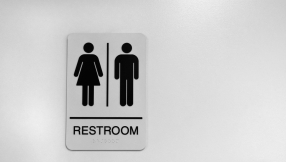
Society might say there is nothing wrong with being gay or transgender, but two former trans men would beg to differ.
Paul and Taylor once thought that changing their gender from male to female would solve all of their problems, but they were bitterly disappointed after the transition took place.
Paul, 38, a computer programmer who is currently unemployed, shared with The Federalist that he is now "detransitioning" from the sex change he started a decade ago.
He recalled feeling ashamed over his "girlish" tendencies, so when he read about transgenderism, he thought he finally found the answer to his problems. "I wasn't deranged or simply gay, but instead I misunderstood what a 'woman' was, that the term was entirely social, and that my failure to be accepted as a man was because I was really a woman," he said.
He was prescribed male-to-female hormones in a San Francisco clinic and claims that he was not told about the risks or side effects. When Paul started having doubts about the sex-change surgery, it was too late. "After surgery, I went into shock at how thoroughly I'd been altered in both appearance and function," Paul recalled. "I was a sex addict, and sex was now disrupted. I also now found myself in a constant, low level of groin pain. A year later, the bleeding began. I was told to wait it out, see a specialist, and not to get a lawyer."
He started detransitioning and stopped taking the hormones that were making him more female. But he became suicidal after the surgery and his groin pain only worsened. Paul now considers himself a "monstrosity," but therapists insist he is suffering from gender dysphoria.
Taylor, meanwhile, started his transition at the age of 23. He said his mental health was very poor at the time, and his only thought was to become a woman or kill himself.
But he didn't find satisfaction in his new identity, so he started detransitioning a year later.
Looking back at the whole experience, he feels medical practitioners should deal with people like him differently.
"I wish I had been challenged by a doctor," he reflected. "I went to an endocrinologist, who gave me a prescription on the first visit, before my blood work results even came back. 'It'll be fine, congratulations!' was his attitude. The doctor should've challenged me."
For those wishing to have a sex change, both Paul and Taylor are strongly advising against it. Instead they are urging people to love the bodies they have.
"Our physical bodies, with genitalia and chromosomes, exist in reality, and part of having a body is hating your body. You are taught to hate your body no matter who you are, male or female, and you are falling for it," warned Taylor.













